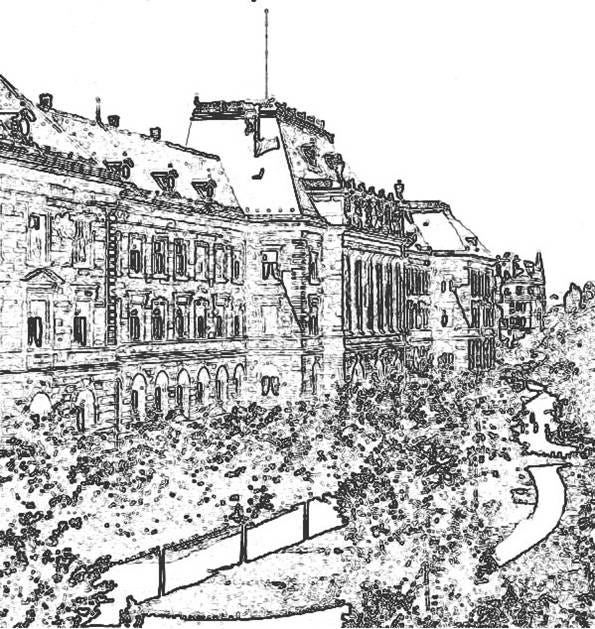August 3 - August 4, 1942.
Summary:
Robert Scholl’s trial for perfidy takes place in Ulm. Judge Cuhorst, the same judge who had given Hans Scholl a lenient sentence for his §175(2) offenses (sexual assault of a preteen male under his command) hears Robert Scholl’s case. Prosecution relies on the testimony of Inge Wilke, Scholl’s 21-year-old secretary. Wilke tells the court that Scholl had used the pejorative “Gottesgeissel” to describe Hitler - a cliche that compares Hitler to Attila the Hun. And that Scholl had made defeatist statements in her presence.
Robert Scholl spins his statements by saying it was a compliment to the Führer to compare him to a man who had changed the face of Europe, and that he didn’t mean Germany should lose the war. He only wanted to make his secretary think about what could happen if the Bolshevists won.
Cuhorst does not buy Scholl’s spin. But he recognizes that Scholl is a loyal patriot who belongs to three significant Nazi organizations: Social Welfare, Civil Defense, and the Bar Association. And that it’s well-known that Scholl is eccentric. He sentences him to four months in jail (not prison).
Traute Lafrenz’s parents visit the Scholls after the trial. Carl Lafrenz recalls that no one mentions the trial. They do not even talk politics.
Gisela Schertling volunteers for war auxiliary service, requesting a difficult assignment. Her official service will not begin until August 30, but she asks to start on August 3. Her request is granted. She prefers the morning shift, because the foreman is more demanding and sets higher quotas. War auxiliary work makes Gisela feel like an integral part of the greater national whole. She proudly becomes a loyal National Socialist of her own choosing, no longer based on her parents’ politics.
Sophie Scholl worries that her father’s conviction may shine a bright light on his children, endangering their “White Rose” work. She and Traute travel to Munich, emptying both Hans and her apartments of anything remotely suspicious, especially leftover leaflets.
Traute and Sophie spend an evening with Christoph Probst, listening to his “wonderful” collection of records.
Why this matters:
Another thread to follow throughout the White Rose story: Authoritarians like Adolf Hitler will even turn on their own people. As we already know from Otl Aicher and Hans Hirzel, Robert Scholl was not so much anti-Nazi as he was an opportunistic, loudmouth man who cozied up to Nazi bigwigs for their business. He got rich off the Nazis in Ulm.
Yet even he had his knuckles rapped for stepping ever so slightly out of line.
No matter where the authoritarian man rules, he will always, but always punish his own followers just as harshly if they deviate the slightest from his prescribed path. Watch for this once the arrests start taking place.Every time I write about Gisela Schertling, I think two things: First, how could Hans and Sophie Scholl bring her into their circle of “trusted” friends? Because of Gisela, too many people lost their lives.
And second, how Gisela did something after the war that few Germans would do: She made atonement for what she recognized as her wrongdoing. She was more self-aware than her Scholl-related story makes it appear.
Robert Scholl and Gisela Schertling: At the time, two sides of the same coin. Both quite happy with Hitler’s regime, for different reasons. Robert Scholl, because he made money off it. Gisela, because she believed in the Cause.
In the end, both were rejected by the very Cause they embraced, because they did not hew fully to what the dictator said.
Any parallels you want to talk about?
White Rose History, Volume II, pages 149-151.
Notes and references available only to paid subscribers.
Listen to this episode with a 7-day free trial
Subscribe to Why This Matters to listen to this post and get 7 days of free access to the full post archives.












